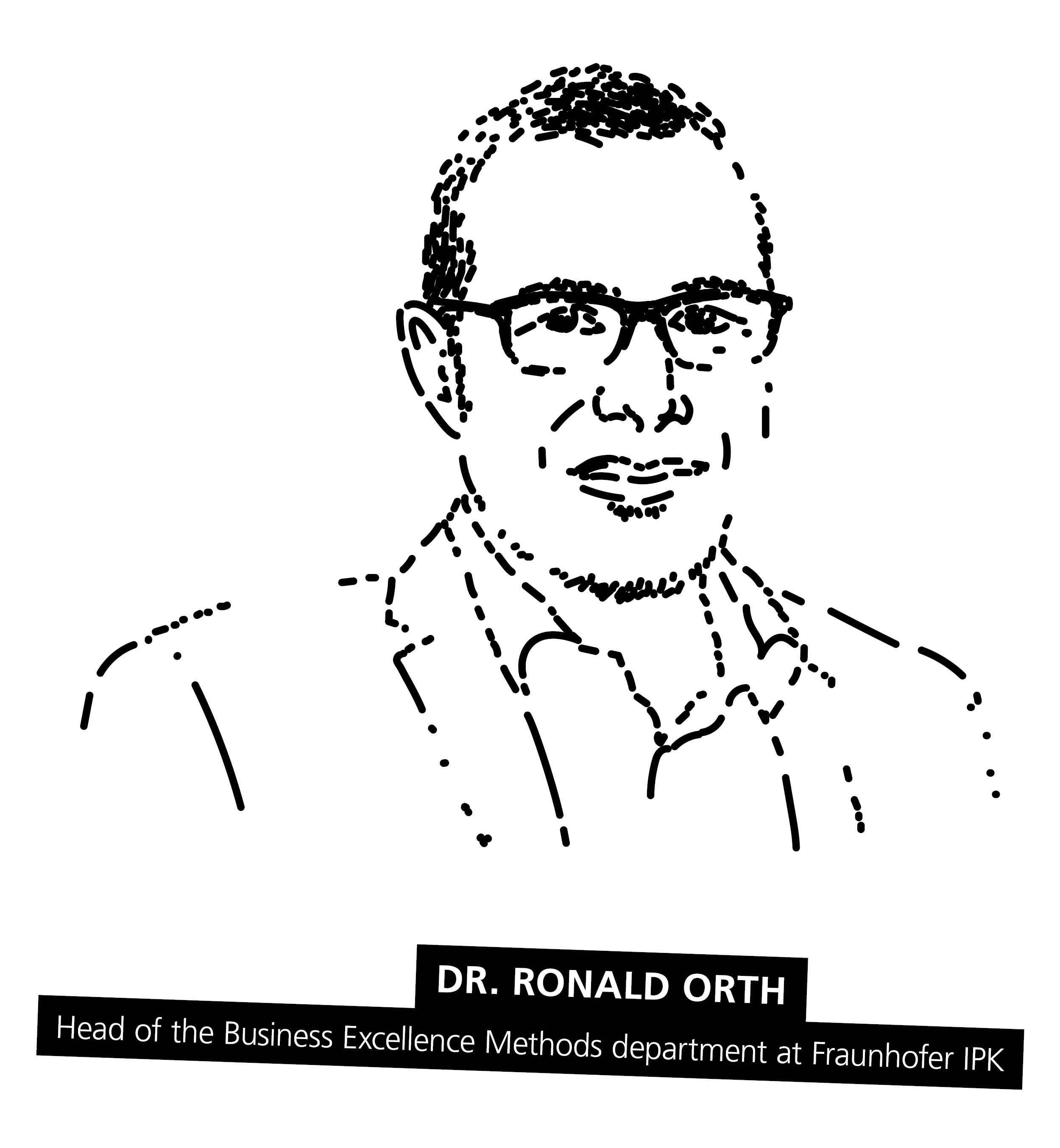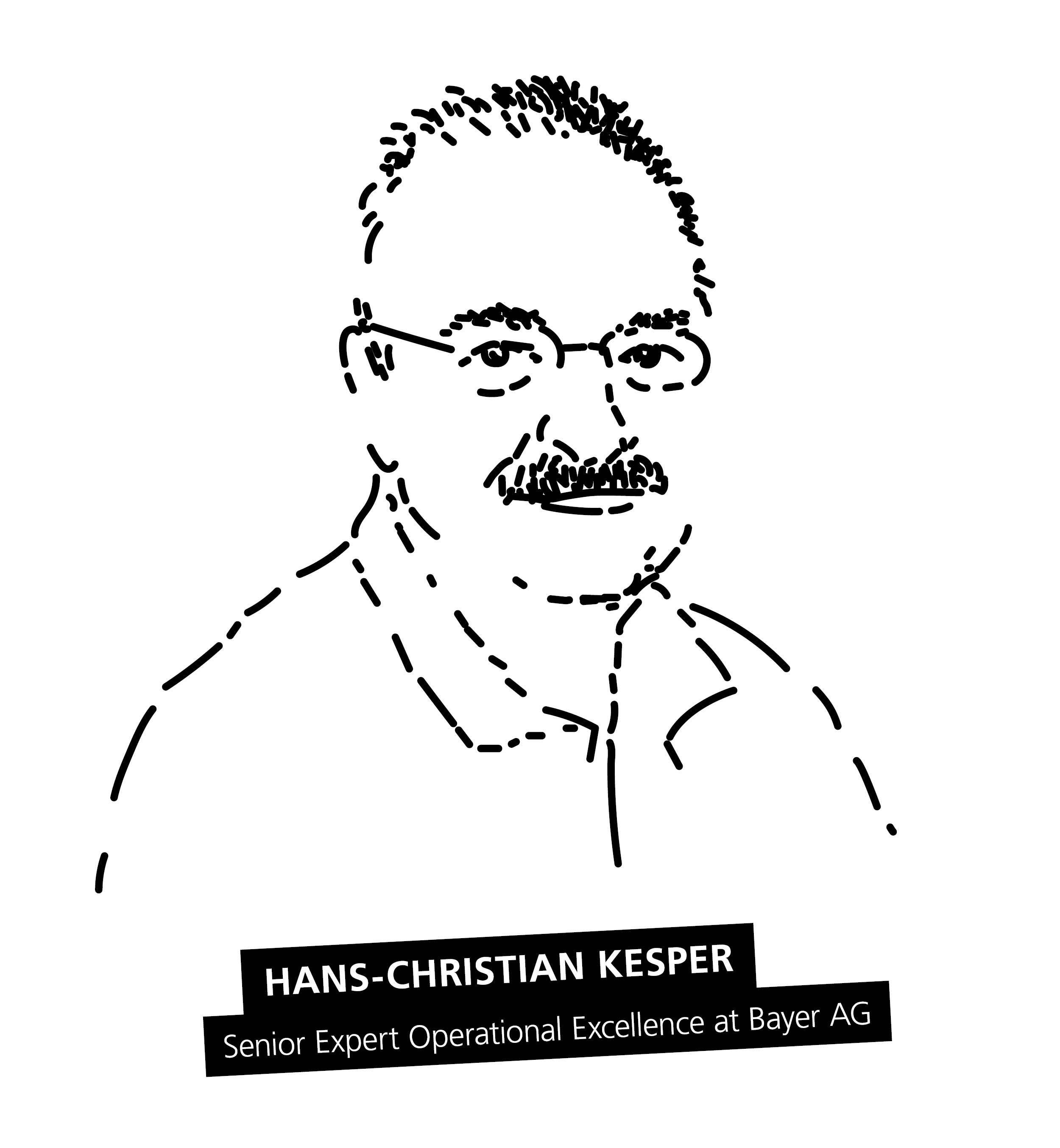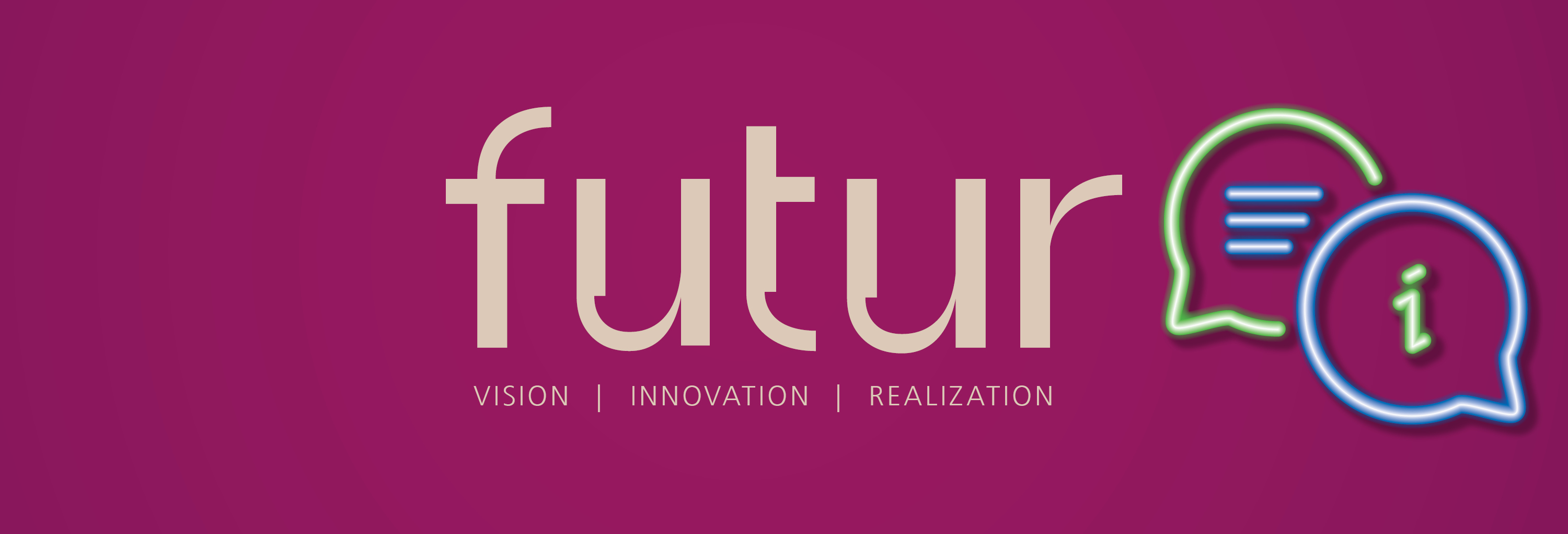Good to Know
FUTUR: Mr. Kesper, »sharing is caring« is the motto of Bayer’s global knowledge strategy. What role does knowledge management play in your company?
Kesper:
In many companies, knowledge management is only given a subordinate role. Yet it has been scientifically proven that around 18 percent of daily work is wasted on inefficient processes and around 25 percent on duplication of effort. Large companies such as Toyota, Apple, Google and Amazon have recognized that sharing knowledge benefits the entire company and has been proven to increase efficiency by up to 25 percent and innovation performance by up to 50 percent. Communication and availability of knowledge are immense drivers of success when restructuring processes in companies and also lead to greater employee satisfaction and company pride. In the context of flat hierarchies, this is therefore a basic prerequisite for functioning cooperation. Furthermore, graduates today no longer judge companies solely based on monetary factors, but primarily on their immaterial substance, which shows how open, innovative and sustainable a company is.
FUTUR: What challenges do you face at Bayer in the CropScience division?
Kesper:
Bayer CropScience develops seed and crop protection solutions that are used globally and regionally. The division is strongly customer-oriented, with the aim of guaranteeing the best possible process for users. Speed is therefore our business. To achieve this, we need a high level of availability of the necessary information in an agile network of colleagues. As in any company, this ensures customer satisfaction and follow-up orders, which will hopefully lead to the company’s success and expansion and, last but not least, secure jobs.

FUTUR: Mr. Orth, what information, what knowledge do companies need in order to know what they are doing?
Orth:
First of all, it is important to have a basic understanding that knowledge is a relevant success factor. This insight is often already established in companies in the technology sector that are very knowledge-intensive and dynamic. The valuation of intangible resources, however, remains difficult. When we launch and invest in measures, how can we as a company say that we have really made a difference at the end of the day? Compared to production, where you have hard key figures, this is a challenging question for us. If we decide that knowledge is relevant, even though we can only measure it to a limited extent – this basic understanding and a willingness to change are fundamental prerequisites for companies to tackle this issue and raise it from the shop floor to the management level. This is also how we and Bayer came together: There was a willingness to initiate changes, to introduce specific knowledge management measures. Together we then looked at where the company stood and where it wanted to go. This self-reflection is an important aspect – only when we know the status quo as well as our goals can we derive and implement concrete measures.
Kesper:
I am at home in the field of operational excellence, so »first time right« is the guiding principle: to do something right the first time by following a structured procedure. The actual and target states must be clearly defined. It is my task to find solutions for the deviations in between. What I find much more important, however, is that the problem description must always be clearly identified and described before looking at the actual and target states. In other words, is there a problem at all? This principle is often forgotten. In our case, the problem description for when it came to »knowledge management« was simple: employee dissatisfaction.
FUTUR: How did you tackle this problem?
Kesper:
We first conducted a status survey among the approximately 350 employees in the engineering department at CropScience. How satisfied were they with the current knowledge management and information retrieval system at CropScience? Together with Ronald Orth’s team, we generated a questionnaire. This initial online survey was good, but did not satisfy us. We therefore verified the results again in 25 individual interviews. Overall, this gave us a conclusive and comprehensible result, which we have assumed as being representative – even beyond engineering.
Orth:
The individual discussions were important in order to gain a better understanding of the burden of psychological strain. You often see the concern that knowledge management is associated with enormous effort – even more documentation, for example. This was a significant insight in the survey: Many employees stated that they have many diverse tasks but less and less time. We were able to address this and make it clear that our aim is to relieve and support them, by making it easier for them to find and use certain information that is already available in the company. Planning changes in small steps in the beginning can also help to see which solutions have already proven successful at other locations. Are there regular project reviews or checklists that can be used in other projects?
FUTUR: What specific solutions found in the joint project are you now introducing at Bayer?
Kesper:
Through the surveys we discovered that employees are very dissatisfied with the way they find information. We improved our intranet search, which we will supplement with a generative AI tool. It should enable employees to find well-founded answers to specific questions, or even recommended instructions. We no longer want to generate lists of results based on search queries that colleagues have to laboriously scroll through. Instead, the system generates answers to questions in a similar way to ChatGPT or Google Gemini and provides the source of information so that you can verify it yourself. We hope to implement this by the middle of the year.
Secondly, we established a multilingual Q&A platform with automatic translation, in which a GPT tool is already integrated, providing quick answers to questions from colleagues and thus supporting various communities in archiving best practices and lessons learned. It also enables experts to connect with each other quickly. Bringing colleagues together with this forum was an important aspect for us. The third measure is being planned: short video formats similar to those on YouTube or TikTok or podcasts, for example on common repair tasks. If we want to work globally with knowledge management, multilingualism must be guaranteed as a standard.

FUTUR: What challenges in the implementation of your knowledge management solutions do you still face? Do cultural differences play a role in your global company?
Kesper:
Not in the technical area. But we experience striking cultural differences in the way we communicate with each other. I believe we have a lot of catching up to do in that regard and should learn from each other. An example from everyday life: I send an invitation with a brief description and my colleague declines without comment. What does that show me? Are they not interested? Are they unavailable, is the topic wrong? We need to work much more with feedback in relationships and when it comes to our behavior – we can learn a lot from each other if we are open to it. That is simply crucial, communication that does not consider the relationship level doesn’t work sustainably. And successful knowledge management without communication is simply inconceivable to me. And success is just sexy.
Orth:
Building these personal relationships was very important in the initial phase of our project. After all, the people we got to know at the beginning were also the ones who supported the process in the end. I can only emphasize that personal communication and early involvement of all stakeholders are very important drivers of success.
Kesper:
I would just like to add: As with any change, it is important that a) the urgent need is felt strongly enough by the employees and that b) the »story« of the change is right. The entire process hinges on the question of communication and the tangible will of the management to see it through to the end. It is therefore important to communicate clearly and promptly. The speed of the change process also plays a major role. As already mentioned, we should give employees enough time to understand and change their behavior according to their personal learning plateaus. We should encourage them to share their knowledge. After a certain start-up time, they will feel that they also benefit personally.
FUTUR: One final question: How is it possible to retain knowledge when experts leave the company – the keyword here being offboarding?
Orth:
That was actually a major topic in our project as well. How can we retain and pass on the experience of someone who has been with the company for 30 or 40 years? A GPT platform would certainly be an exciting option here. Instead of traditional documentation, you could conduct interviews and then feed them into GPT tools via voice-to-text. Employees could then chat with their company’s knowledge base and see what experience is available on a particular topic. We are still at the very beginning, but this is an exciting research approach to capture and make available experiential knowledge in and for companies in a different way. In principle, however, I am convinced that a good structure and personal communication are still important drivers of success in offboarding and in knowledge transfer processes in general.
Kesper:
In my opinion, knowledge management will no longer be possible without a generative AI tool connected to approved data sources. But I am thinking even further ahead: Offboarding could be completely eliminated by continuously recording our employees’ empirical knowledge and making it available for use through our Q & A platform. This will make onboarding new colleagues much quicker. We should always capture knowledge, experience and feedback promptly, otherwise we will not be able to improve ourselves and our company performance. And as already mentioned: There is nothing wrong with being successful.
 Fraunhofer Institute for Production Systems and Design Technology
Fraunhofer Institute for Production Systems and Design Technology